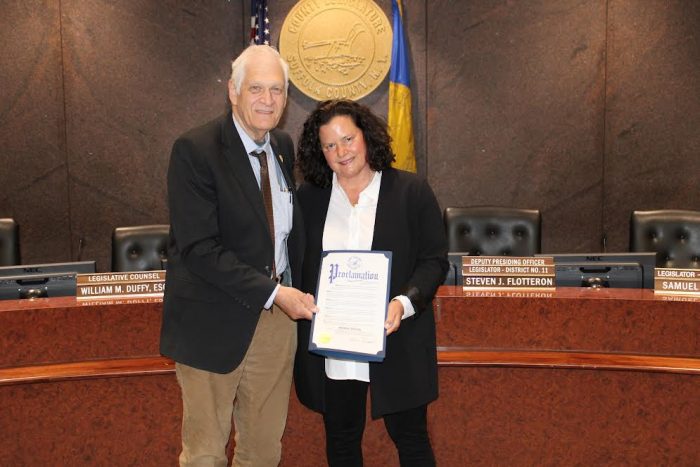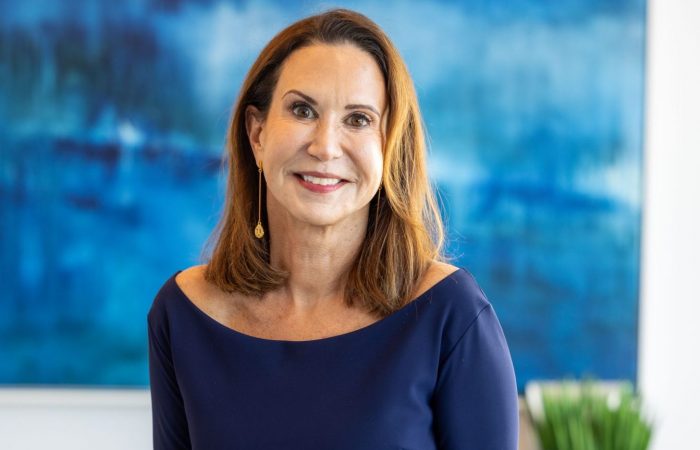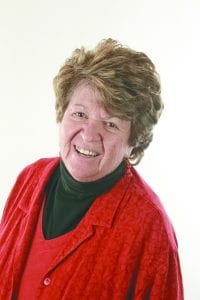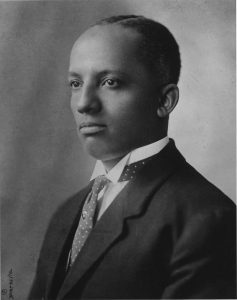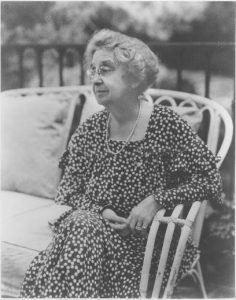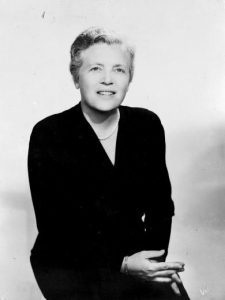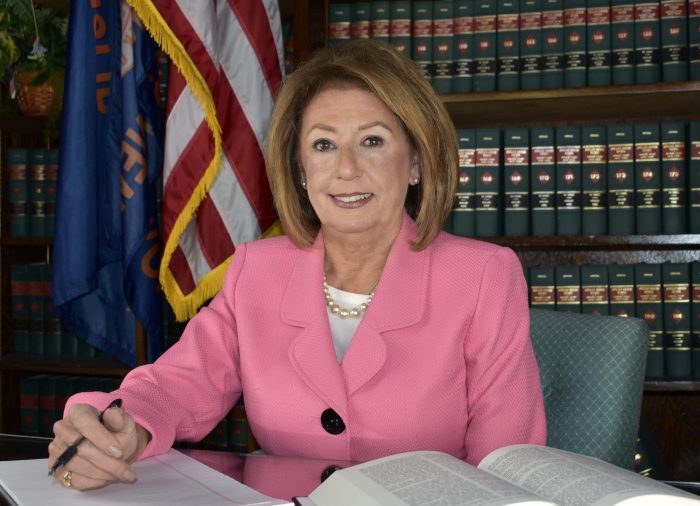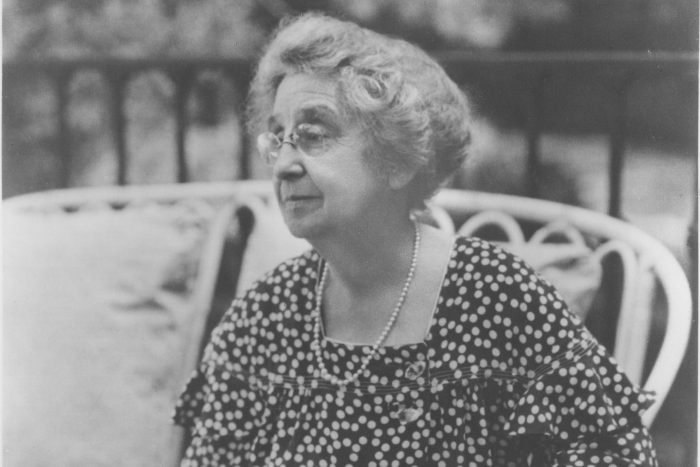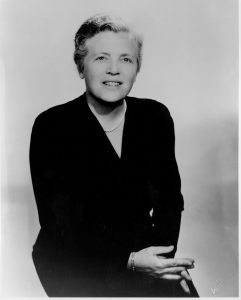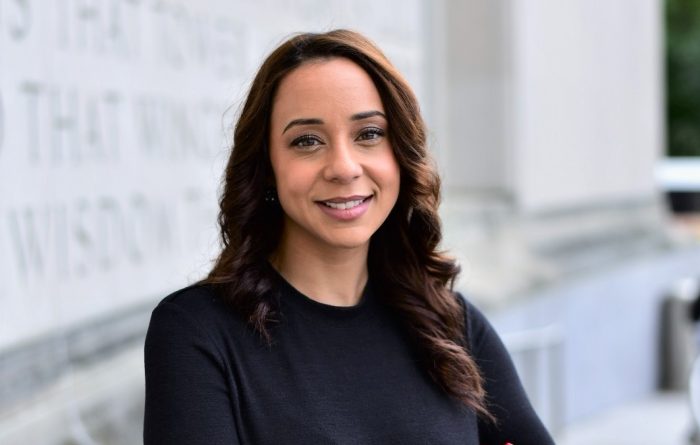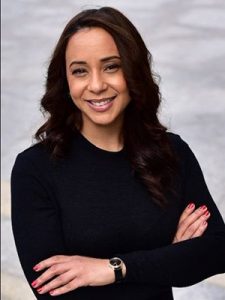This week, TBR News Media sat down with Suffolk County Clerk Judith Pascale (R). In our interview, Pascale was candid about Women’s History Month, the controversy surrounding her upcoming bid for reelection and her legacy in the county clerk’s office.
What is your professional background and how did you get to the county clerk’s office?
My husband has a business, and I was the chamber president for the Mastics and Shirley Chamber [of Commerce] many years ago. I was the first woman that was ever running for president of that chamber. It was kind of a contentious race of predominantly men and, to cut a long story short, I won by one vote.
Later on, I went to work on a congressional race as a volunteer for Ed Romaine’s [R] campaign. After that, I worked on a district attorney’s race. When Ed Romaine ran for county clerk, he asked me to join him and that’s when I first went to the county clerk’s office, which I believe was 1989.
I went in as senior deputy, in charge of court actions. Ultimately, I became the chief deputy county clerk and served for him for about 16 years. He decided to leave to go back to the [county] Legislature — he was term limited — and when he left, I became the acting county clerk because in New York, you have to have a county clerk, a sheriff and a DA. It’s a state constitutional office.
I screened for the position, amongst many others. On March 10 of 2006, then-Governor George Pataki [R] appointed me after months of investigation. Luckily, as I like to say, I led a very dull life and got appointed and became the acting county clerk. Subsequently, I ran for the open seat. I got elected and was elected again in 2010, 2014 and 2018.
March is Women’s History Month, and you are just the second woman in the history of Suffolk County to hold the office of county clerk. What does that distinction mean to you?
I think that it’s important that women are judged by their capability, and I think there are certain industries and certain professions that women have broken the glass ceiling, broken the marble ceiling. I think that’s important, and I think that’s a mantle that I’m very proud to carry.
As far as other women are concerned, I think it’s very important for people to know that no matter what you are, you have the capability. I’m very proud to be the second woman. There are a lot of county clerks that are females, there are a lot that are males, but I’m only the second woman to hold it in Suffolk County.
How has the landscape changed since when you first started out? Do you notice any more women holding leadership roles in government now?
I think it has become more acceptable, more accepted that women have a great contribution to make. I don’t think it should matter whether you’re a man or a woman. If you have the capability and you have the drive and you have the ethical standards, then I think certainly the door is open for women.
Transitioning into this year’s race for Suffolk County clerk, we spoke with Republican nominee, Smithtown Town Clerk Vincent Puleo, last week and he was under the impression that you were going to retire after this term. We’d like to give you an opportunity to clear that up. Do you intend to retire after this term, or do you plan to run for reelection?
Any elected official that tells you that they’re never running again — first of all, if they say that, it may be in the heat of a moment.
They are saying that I made a commitment that I would not run again. I believe that commitment was that I wanted another term. They’ll say that I absolutely said that I would not run again, and that is not something that I said. I said at the time that I wanted another term.
Listen, do I expect to stay here forever? No. I’ve given 30-plus years of my life to the county clerk’s office. I’m very, very proud of everything that we’ve done there. We moved this office light-years ahead and that’s because I have a great staff.
The issue that I have is the way it was handled. I asked at the end of the year if I could do a kickoff fundraiser. I was told I could. I planned one in the beginning of February and the Friday before my fundraiser, I was told that I had no support. I’m extremely proud of what we’ve done. We’re an award-winning office throughout the state. The fact that the party that I supported — I mean, I broke bread with these people — then all of a sudden I was being thrown out like last week’s trash.
Primaries are very difficult and running a primary is a herculean task. They have an army. Anybody that has wanted to help me has, I’m going to say, been intimidated. Basically, I’m on my own and I don’t know if I’ll be successful. If I can get enough signatures to get on the ballot for a primary, I will.
They want me out and, to me, that’s pretty devastating. I’ve served with integrity and dignity, and they should have told me six months ago. At least let me leave with some dignity. And I will tell you this: Women have come up to me and have thanked me for doing this. I’m the only countywide elected official that’s female. It’s not easy, it’s exhausting, and no one can help me. The fact that I’ve served this party and served this committee for all these years, and now I’ve become a pariah. That’s upsetting.
As a follow-up, you have won reelection multiple times. You do have name recognition and an electoral track record. If you do get the signatures, are you interested in running in a primary race against Vincent Puleo?
I hate it. Nobody wants to go into a primary. The purpose of getting enough signatures is that if you get enough signatures, you do a primary. Primaries get ugly and, like I said, he’s got an army and I don’t. It would be very ugly and it’s not something that I look forward to, but sometimes you do things that you have to do.
With all of that being said, if you were to win reelection in November, what kind of vision do you foresee for your office over the next four years?
When COVID hit, it was like the perfect storm. COVID hit and everybody moved to Suffolk County, so that meant that all of those land and real estate documents had to be processed and they were initiated. We not only had a shutdown order, but also this influx of this crazy real estate market in Suffolk County. We were able to do a remote system, so there was no interruption in the real estate economy, none. No financial disturbance was caused and, as a matter of fact, it was actually enhanced.
We would like to add more things to the system: more documents, more document types. I would just like to continue along that trend, add a few more documents to the electronic recording system.
I’d like to amend the mental hygiene law for those people that have been determined to be mentally incompetent. My concern is that these people may have considerable assets, and we want to change the law to say that only the appointed person from the court can view that file. We don’t want “Cousin Mary” to be able to say, “Oh yeah, she’s got $300,000 in the bank.” These are vulnerable people that need to be protected.
Also, one of our primary concerns is cybersecurity, which is a concern everywhere. We’re working on that now and have a couple of capital projects that we’re working on to ensure our records are maintained and secure. There are a few more things that I would like to finish up, and if that happens it would be beneficial to Suffolk County residents.
Could you summarize your legacy in the county clerk’s office over the last three decades? What do you hope to be remembered for?
I would like my legacy to be that I have brought this office into this century and beyond, that I have made this office more user-friendly while simultaneously protecting the privacy of those people whose privacy needs to be protected. My legacy should be that we have won the ‘Best of New York’ award, and we’ve gotten an award for bringing government closer to the people.
Government is a maze for most people. People have a difficult time navigating the government. My goal was to make it more accessible, more user-friendly, and we’ve won awards for this. I’m very proud that we put together a great IT team. I’d like my legacy to be that I improved the county clerk’s office, picked up where the last county clerk left off and brought it into the next phase.
I think you have a responsibility as an elected official to leave the office somewhat better than the way you found it. Despite some of the wonderful county clerks that we’ve had, I am pretty confident that I will leave the office better than I found it, all while serving the 1.5 million Suffolk County residents.
Click here to view our interview with Puleo, “One-on-one with Vincent Puleo, GOP and Conservative candidate for Suffolk County clerk.”

